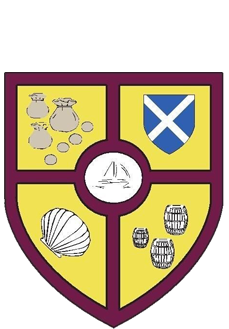'Train up a child in the way he should go; even when he is old he will not depart from it.' Proverbs 22:6
Modern Foreign Languages - Spanish
Intent
At St. Nicholas’, celebrating different languages and cultures is encouraged through all we do. We understand that learning another language is a liberation from insularity and provides an opening to other cultures.
A high-quality languages education should foster pupils’ curiosity and deepen their understanding of the world. Our Spanish curriculum is designed to progressively develop pupils’ spoken and written skills through a language rich environment where all children have the opportunity to learn, enjoy and achieve.
We aim to develop confident, enthusiastic speakers. We intend to set the foundations for language learning – preparing children today for their new tomorrow where they are successful, global citizens.
Implementation
To ensure a high-quality Spanish education, lessons are designed to motivate, captivate and interest children from the first moment. They have clear, achievable objectives and incorporate different learning styles. SEN children have access to the curriculum through variation of task, grouping or support from an adult. A variety of approaches are used within each class and teachers refer to the progression of skills and knowledge documents to ensure that the objectives taught remain progressive throughout school. Spanish is taught in a whole-class setting by the class teacher.
Teachers plan their lessons using the Language Angels scheme of work and can supplement this with their own ideas and experience and those of their colleagues.
Each class has a timetabled lesson. In some cases this may be split across different days of the week. Spanish can also be revisited in short sessions throughout the week to consolidate knowledge and ensure new language is retained.
Spanish lessons include:
- PowerPoints and interactive whiteboard materials
- Interactive games (which pupils can access from home to consolidate their learning)
- Songs & raps
- Differentiated desk-based consolidation activities
- Worksheets (at three different levels of challenge) are provided throughout each teaching unit and can be used in class or can be sent home to be completed as a homework exercise
Each lesson will focus on a combination of the 5 key language learning skills: speaking, listening, reading, writing and grammar.
Impact
Children’s work in Spanish is observed during lessons allowing teachers to provide feedback instantly. Children are encouraged to assess and evaluate both their own work and that of other pupils in a respectful and compassionate manner. This helps them to appreciate how they can improve their work, and what their targets should be for the future.
Monitoring is carried out by the Spanish lead through the collection of pupil books; pupil discussions; informal conversations with members of staff; evaluation of end of year data and the observation of Spanish lessons.
Policy
Curriculum Overview

